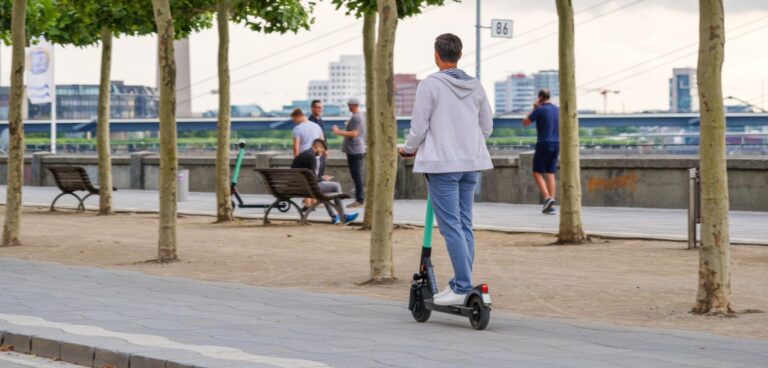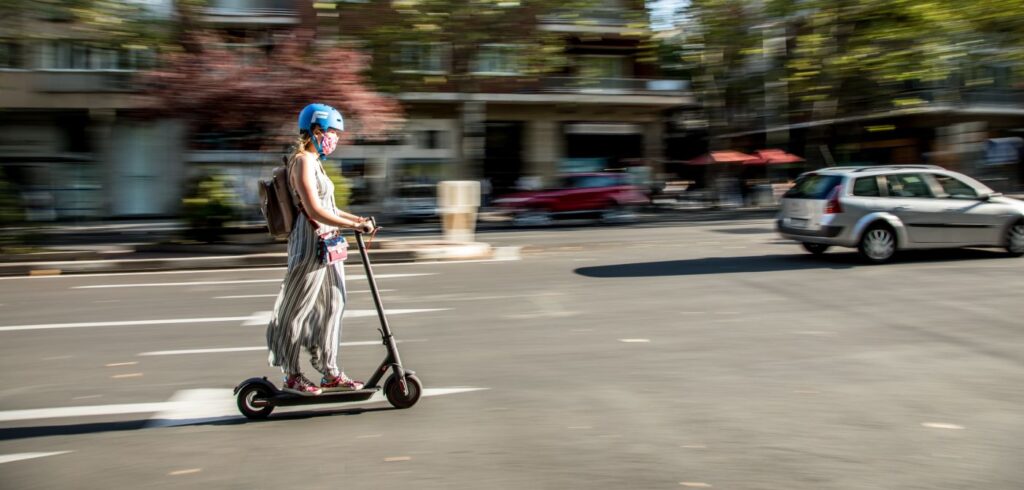A new report calls on the UK government to legalise private and shared e-scooters alongside a comprehensive package of measures to ensure their rollout is safe, affordable, and accessible to all in the capital.
This includes giving Transport for London (TfL) the power to manage shared e-scooter schemes in the capital, ensuring all vehicles meet minimum safety standards, and requiring operators to provide access to shared schemes in neighbourhoods with fewer public transport options.
Micromobility in London, from think tank Centre for London, highlights the need to streamline the experience of riding and parking e-scooters and e-bikes. The authors argue that inconsistencies in provision, such as stopping shared e-scooters at local authority boundaries could prevent people from using them, particularly new users or those on low incomes who may rely on a shared vehicle.
It suggests to ensure safe riding of the micromobility mode there should be penalties and rewards such as price incentives, as well as working with local authorities to deliver e-scooter training to new riders.
The report also recommends that all vehicles must meet minimum safety standards both at the point of sale and while being ridden. It recommends a maximum permitted speed and enforcing the need for all e-scooters to have lights to ensure they can be ridden safely alongside bicycles. Police should be able to enforce bans where unsafe riding persists.
Additionally, it argues that legalisation must go hand-in-hand with policies to make micromobility accessible to all, particularly for the one third of Londoners who live in areas with the lowest public transport accessibility levels.
The report calls on operators of shared schemes to be required to provide access in less populated areas, particularly outer London. TfL should also work with local authorities and operators to encourage take up of these vehicles by those least likely to consider using them, including women and older Londoners.
Will Norman, London’s Walking and Cycling Commissioner, said: “We recognise the opportunities presented by micromobility and through our e-scooter trial and ongoing work, we are looking at both the long-term role they could play in a green and sustainable future for the capital, as well as the role they can play in avoiding a car-led recovery from the pandemic.
“The trial will allow us to collect data that will further help to shape UK and London policy in micromobility.
“Safety remains our top priority and we will continue to closely monitor e-scooters in trial areas, making improvements wherever identified.”
Read more in this week’s comment piece which comes from one of the authors of Micromobility in London, Josh Cottell, research manager at think tank Centre for London…






